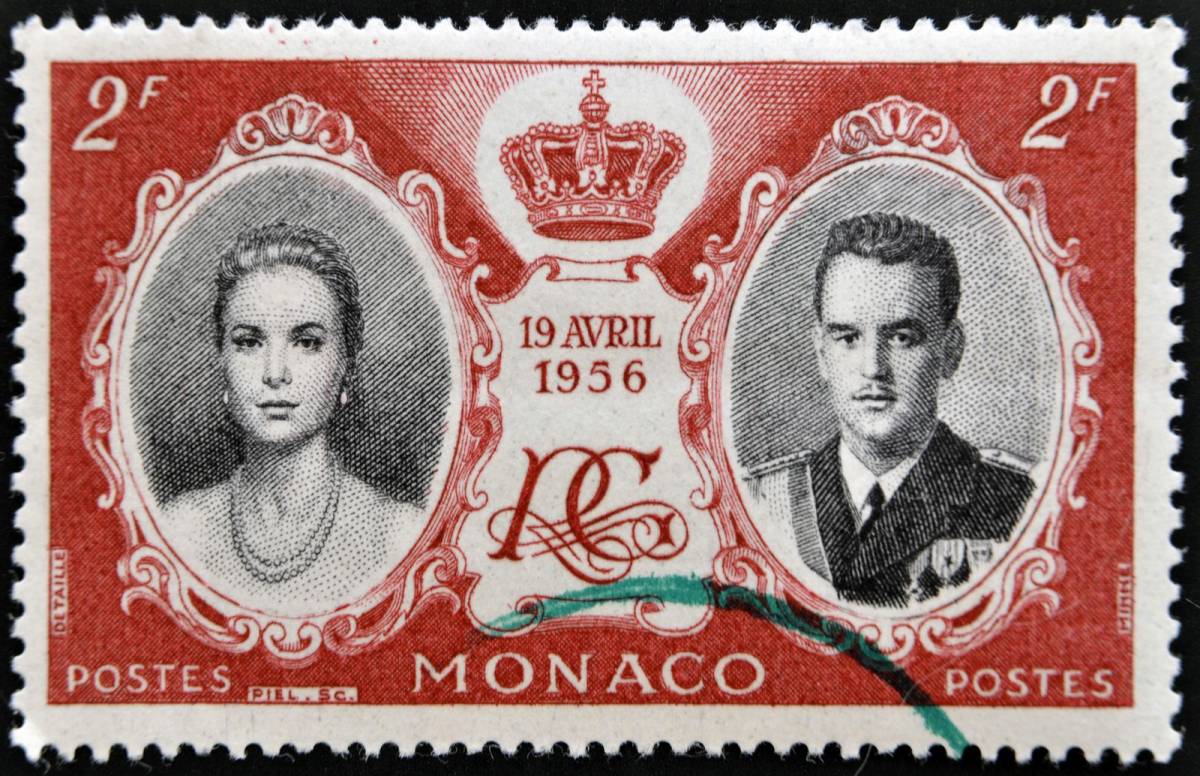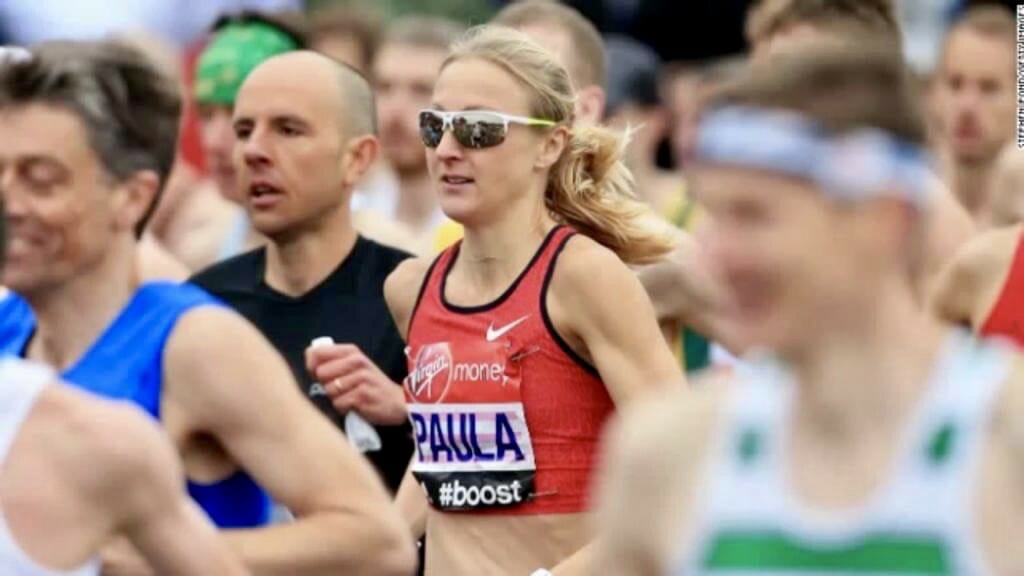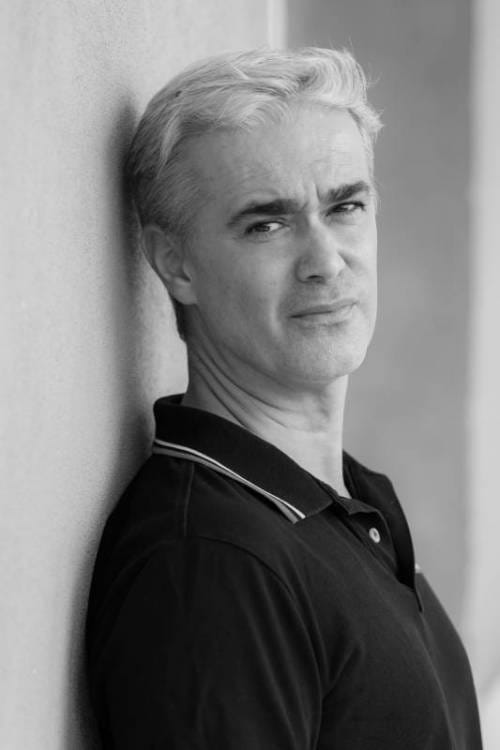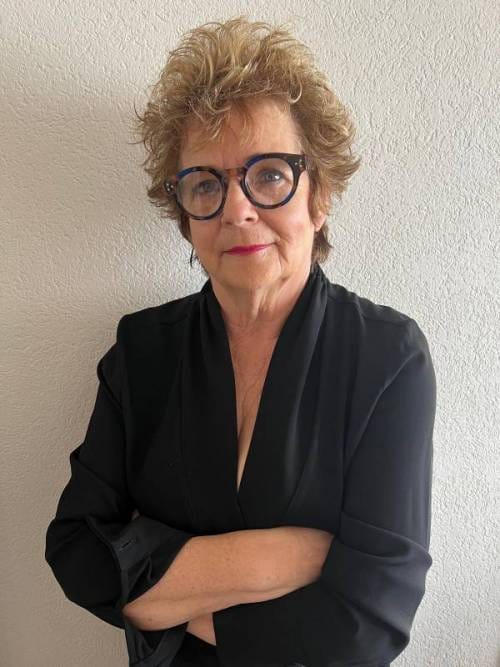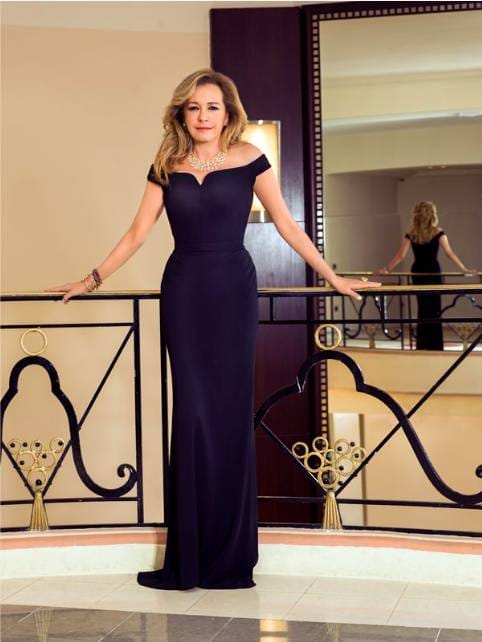Paula Radcliffe is a six-time world champion, seven-time Big City Marathon winner. Her world record is 2 hours 15 minutes and 25 seconds, which still remains unchallenged since 2003. She lives here in Monaco with her family, is a Monaco Run Ambassador and a Champion for Peace. Paula Radcliffe participated in our Words of Wisdom interview to shed some light on what drives her, what keeps her balanced and how running can be a healing experience.
HelloMonaco: Did you think that your world records would hold for so long?
Paula Radcliffe: No. I think it was a goal to, first of all, set the first world record in 2002 in Chicago and then to try and beat it in London in April of 2003. After that, I believed that maybe I could go a little bit faster. But for marathons you have to have a bit of luck on the day, you have to be in good shape, do very good training, have a good fast course, good organization, good weather, but you also need to have everything come together at the right time.
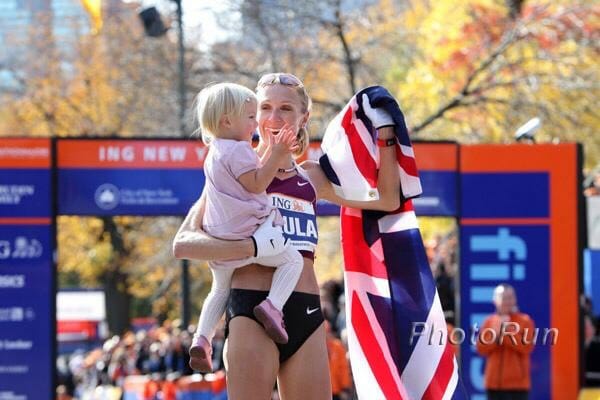
HM: What brought you into professional sport?
PR: I think it was a very gradual process into professional sport. It was mostly in the beginning, because I enjoyed it, I loved running. I loved the feeling of racing, of pushing hard against myself and I just had fun. It was just something that I turned to, it was almost a stress release. When I was growing up, when I was doing exams at school, I couldn’t wait to get out and go for a run. And then I started to get better at racing and I started to think: «Ok, maybe I could make a career from running»… I was very lucky, I was able to make my career post-university from athletics.
HM: You won three London marathons, three New York marathons and one in Chicago. What was your most valuable victory?
PR: It’s really hard to choose because I think my first marathon victory was really special, that being the first time I ran in the London marathon in 2002, because I had never raced a big city marathon, or any marathon, but I had grown up watching the London marathon for many years. It’s something that every year I would sit down and watch and I’d seen so many of my idols go there and race well and set world records there… Everyone was cheering for me because it was in Britain, so that really made it a very memorable experience. Also, winning the world cross-country for the first time as a senior for me was very special, because I won it as a junior in Boston in 1992 and I made it a goal to win the senior championships. It took me nine years and a lot of 2nd, 3rd, 4th, 5th places and finally, in 2001, I was able to win it in Ostend in a little bit of a sprint finish, so for me that was very special because it showed the importance of perseverance, of sticking to your goals and to just keep trying.
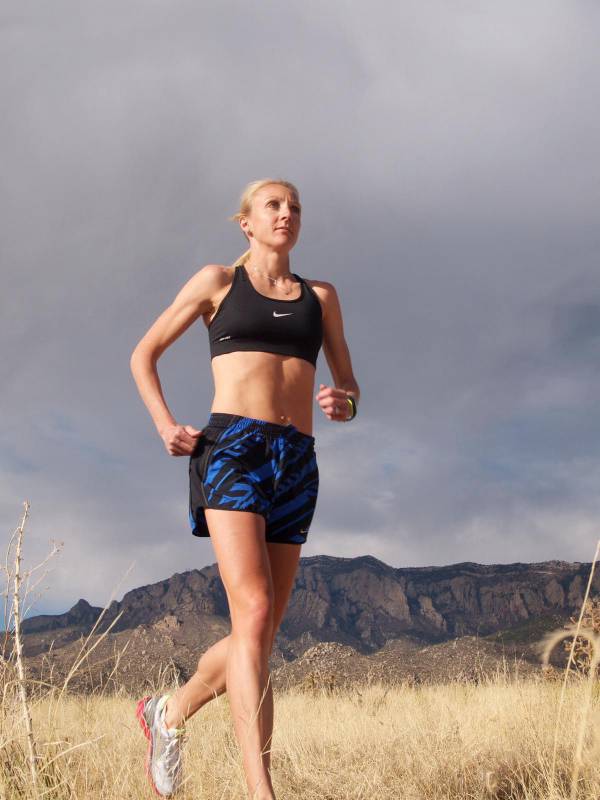
HM: How did you find your life after you ended your professional sporting career; was there a transition period?
PR: I don’t think so, I think for me, it was maybe a unique experience because my foot broke down just before the Olympic Games in 2012, so I wasn’t able to take part in what should’ve been my final Olympics before I was going to retire. I then spent two or three years trying to rebuild, recover from the surgery and get back to running, to be able to run one final marathon on my terms so that I could retire. So it was a gradual process, because those three years were not a competitive career, but they weren’t retirement either… I was also able to value the long period I had where I was able to compete and come to terms with the fact that I wasn’t going to be able to compete at a high level anymore, but I was going to be able to run. That’s the other thing, with distance runners, we don’t have to fully put away our sport. I can still run every day, I can still get that enjoyment that I always loved.
HM: You are the Champion for Peace, what does that mean to you?
PR: I think it’s a really important movement. Joël Bouzou has done a lot of work setting it up; Prince Albert has been a great supporter. The essential ethos behind it is that sport can break down barriers and differences and do something to stop the wars and the violence that’s going on and create peace because it has a unique way of bringing people together. That’s what’s so powerful about Peace and Sport, is that it brings those two elements together.
HM: You have two kids. Do they share your passion for running?
PR: I think so. It’s early to tell yet and I think it’s difficult for them also because there is a predetermined pressure and expectation on them from the moment they set foot on an athletics track… But they’ve grown up in a running environment. When my son runs, he feels free, which is what I feel like and my daughter is very competitive so she can push herself really hard, in all sports, to do well. They’ve both already run in a 5 km. In Disney Paris, they ran in the 5k there and had a lot of fun. They are both in ASM Athletism, so they race in the different cross-countries. In the Cross du Larvotto, she won and then she won the Departmental Cross in Fréjus.
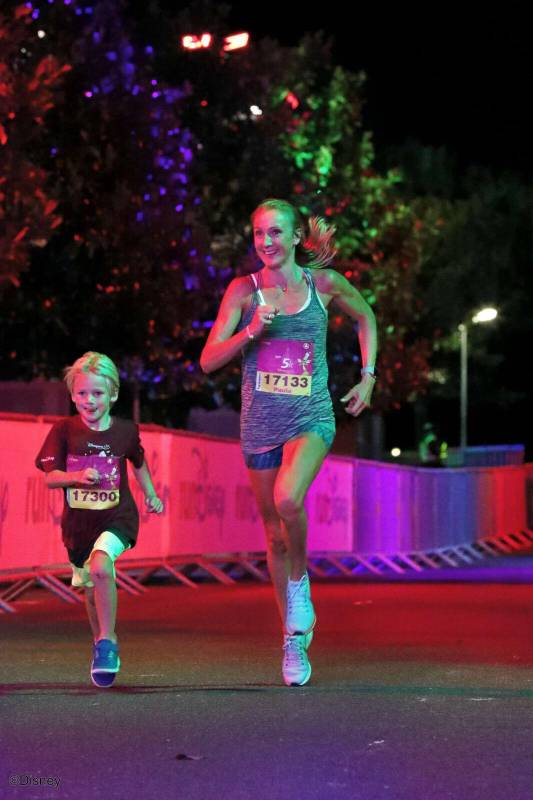
HM: When we are talking about a marathon runner, it’s not just about being in very good physical condition, it’s also about your mental condition. What is your secret, how do you prepare yourself, how do you motivate yourself?
PR: I think the marathon is kind of a unique beast, you have to relish the challenge of it. Because in the marathon, it’s not just you against the competitors, it’s also you against the distance, you against your own body and you against your own mind. It’s about staying focused and when you are really excited and looking forward to that challenge… Even though your body is physically on that edge of its limit, you have to stay focused about everything else that’s going on around you, so you can see what your rivals are doing, anticipate what they might do and still put your race plan into action.
HM: We often treat our job or our professional career as a means of making money, but our life’s purpose, we tend to live that for ourselves. Do you differentiate your sports career and your job?
PR: I always say that I’ve been very, very lucky because I have been able to have my career be my hobby and be something that I love doing and something that made me feel better and it made me be a nicer person to be around. I think that the morals that I live my life by, the goals that I put into my life, are the same goals that I put into my sport, to be true to myself to stand up for what I believe in, to be fair to other people. But also to give it my best every day, to be the best person that I can be in my life, as a mom, as a wife, as a friend, but also as an athlete. I think it all applies across every area of my life.
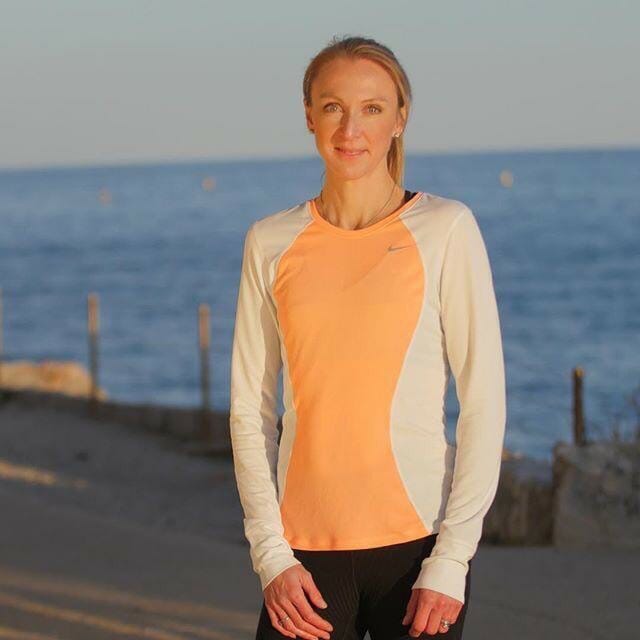
HM: But it’s quite difficult to be the best person as a friend, as a mom, as an athlete, as a wife. Do you think you succeed?
PR: I don’t think you can succeed all of the time, I think you have to be able to also give yourself a break and be kind to yourself, because nobody can be perfect and be the best that they can be every minute of every day. But you can recognize when maybe it slips a little bit, and apologize to the people around you and say: «Sorry you didn’t get the best of my attention then because I was tired, I was in a bad temper and needed to go for a run».
HM: Do you think that success and money always go together?
PR: No, I think you can be a very successful person and not have money. Even just within sport, there are some sports where there is no money in that sport, but people are very successful and very happy, they just have to move on to another career afterwards. For example, in the Olympic Distance Triathlon, they train very hard, put a lot of work in and they’re extremely successful, but you can’t make a living doing that, you have to move on to a career afterwards. So I don’t think at all that money is a measure of success. I think if you get caught up into that, it can turn the other way around, where instead of trying to be a successful person, you try and be a rich person, and maybe you end up not successful but rich, but are you happy?
HM: We live in Monaco, it’s a very special place all about the mega yachts, super jets and all about luxury. What is luxury to you?
PR: Luxury, I think, is having spare time to spend doing something that makes you happy. So, for me, luxury is just having a few days at home where I can just relax with my kids and get things done that I’m always pushing away because I’m too busy… That for me is more important than a luxury object or a luxury possession. That’s nice, but it if I had to choose between the two, I’d always rather the time spent with people that I care about.
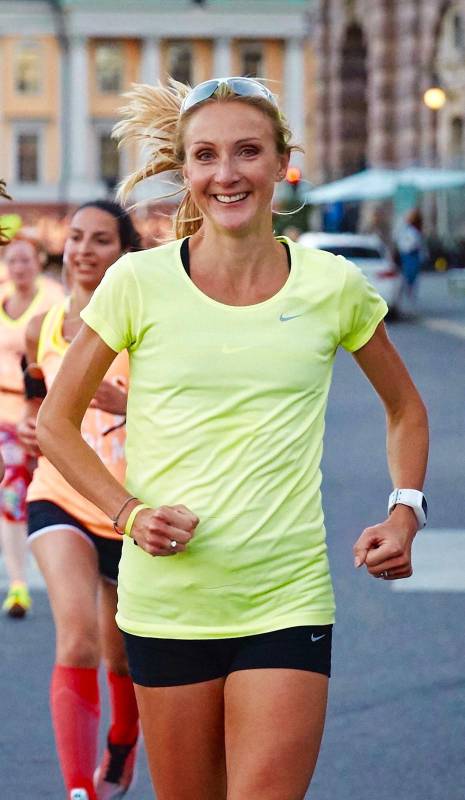
HM: How long have you lived in Monaco? Do you like it?
PR: Coming up on 15 years, almost. Yeah, I do like it. My children were both born here, for them, it’s their home. And I think there are many different levels to Monaco. I think that there is a superficial level, which is all about the luxury and it’s all about the cars and objects…and I think that there’s the other level of the people who are here all year round. It’s a small community, it’s a nice community. I think it’s very safe for children growing up, it’s very welcoming for people from all cultures. I love the fact that you hear so many different languages walking around Monaco and so many people have made it their home and it’s a very multicultural society. I think many times, elsewhere in the world, places become very closed off and people become almost afraid of different cultures and of being open. I like the fact that it’s like a village but it’s like a very friendly, multicultural village.
HM: If you had a chance to change one thing in the world, what would it be?
PR: I think it would be on the environmental side if there was a chance to do just one thing. Climate change is having a major impact on the environment too. I would just try and do something to make it a cleaner, safer place for our children to grow up in.
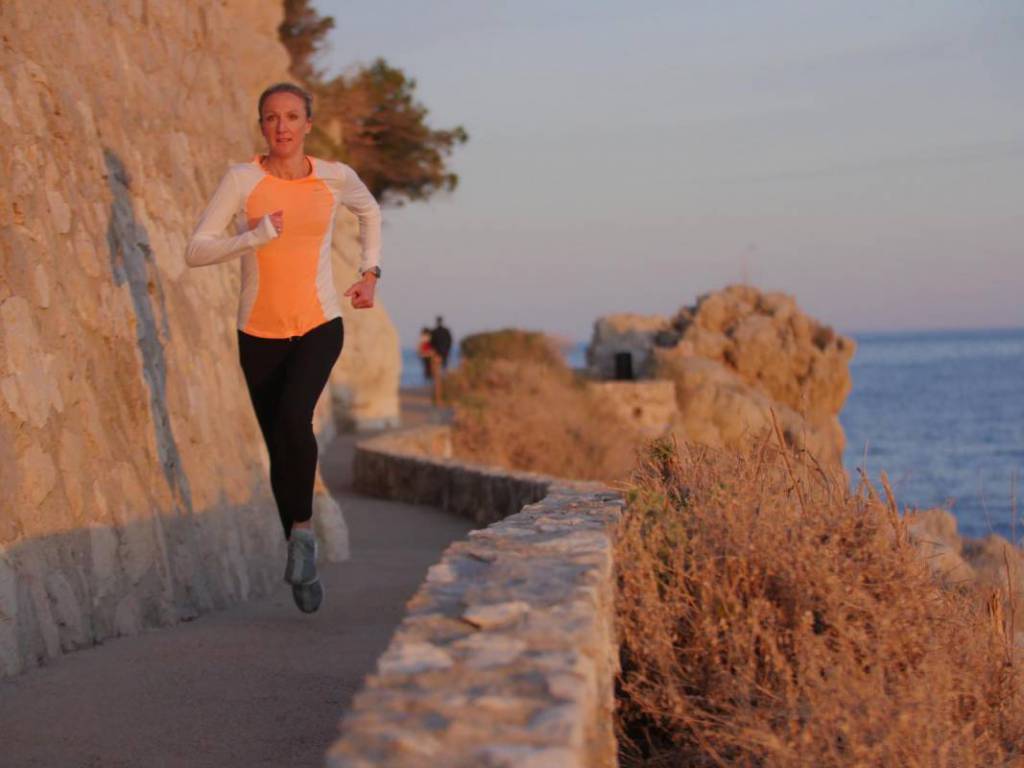
HM: Have you ever had a life-changing experience?
PR: Going through the experience of the Olympic Games in Athens did change me and it changed my life because, up until that point, the Olympic Games was something that was a huge goal for me.…But, I kind of went right to the bottom and then thought: «Ok, I can survive this, it’s not the be all and end all, I’m ok with it. I can go on to value the things that are really important in my life and not over-stress about essentially one race that didn’t work out». I was able to put that into perspective, but I think it took me a lot of time at the beginning. It felt like it was the end of the world.
HM: What do you think about this Words of Wisdom project? Is it important to talk about all these things?
PR: Yes, I think it’s really important to talk about it because I don’t think you start out as a wise person. I think you start out maybe with the potential, as a youngster, to become a wise person, but you have to learn from experiences… I think it’s very important that we’re all open to learn all the time because we can always learn something new and we can always be a better person.

